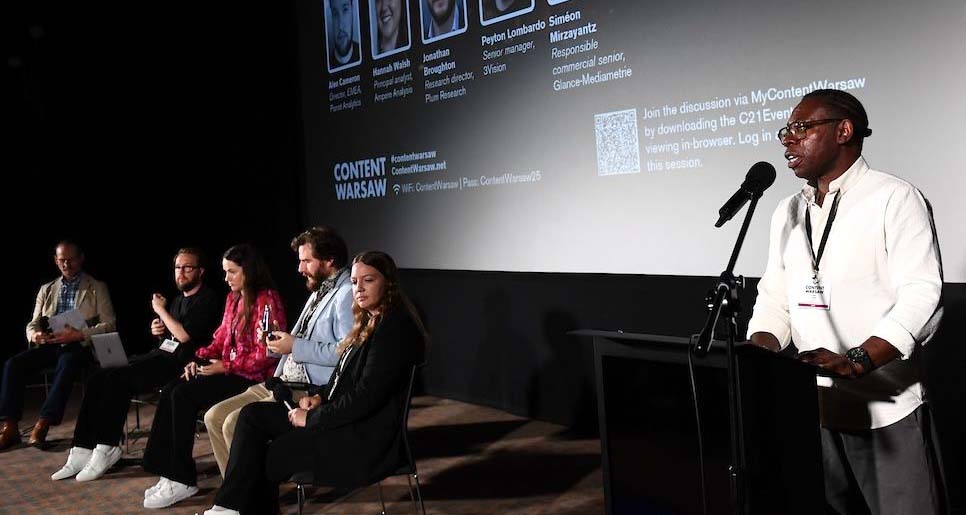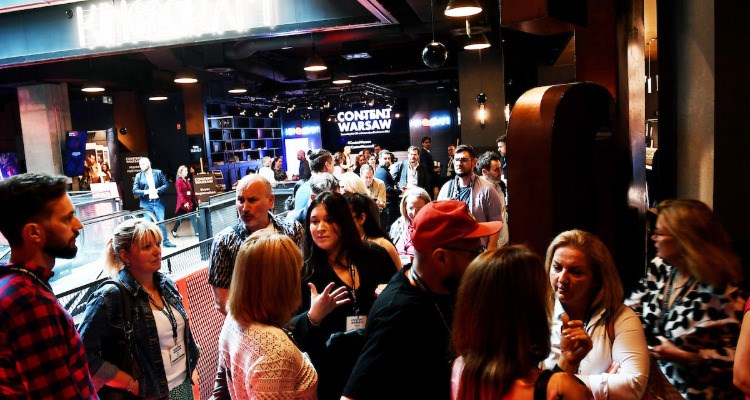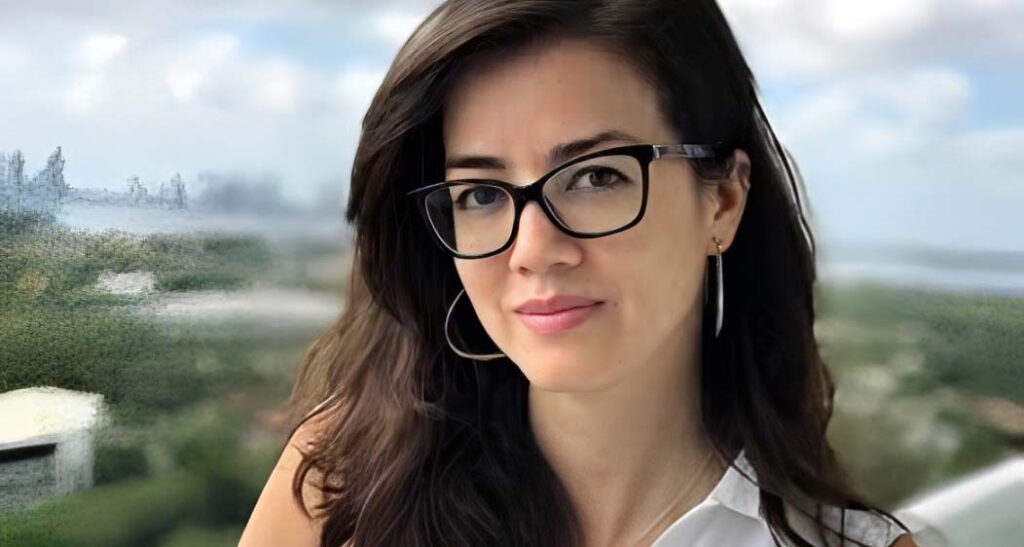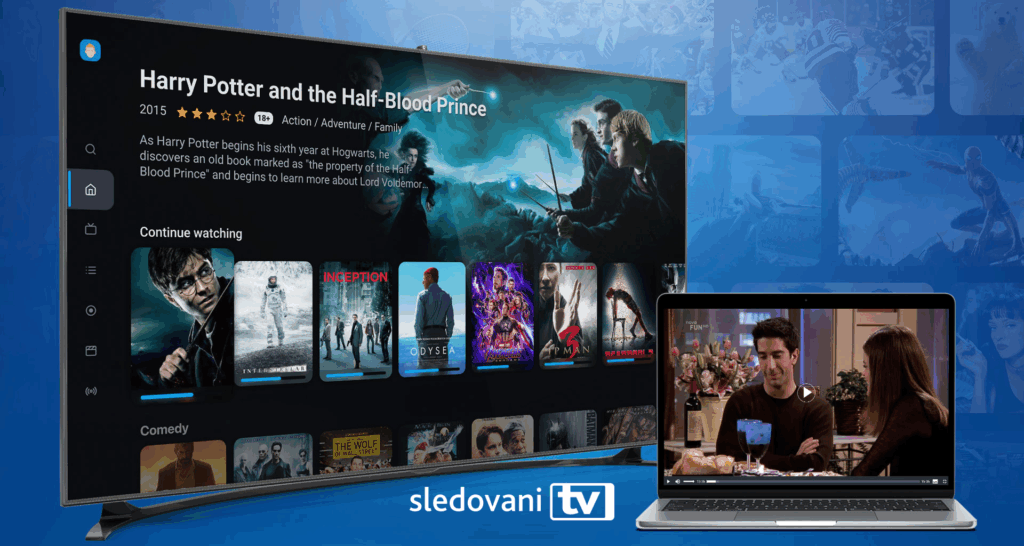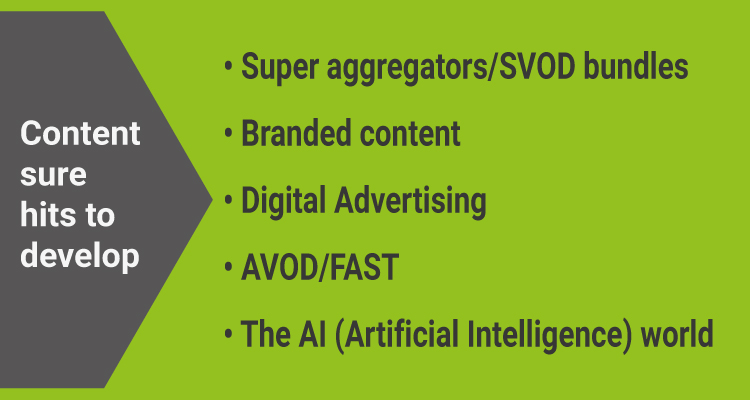
As we say into the Central report at this edition, there are like two paths in the content market: the traditional issues, that are reloaded this year after the more downs than ups of the digital platforms, and the vanguard side, where everything is evolving fast towards a new digital age. This path includes technology and business evolution, both are important. Let’s see the main issues to face for them.
The greatest new thing is Artificial Intelligence (AI). This concept is the evolution of others at the IT industry (Business Intelligence, BigData, Machine Learning) and means to include robotic processing capacity to former applications. It has been existing for decades, of course. What has changed this time? Two punctual but strong big tips: AI has evolved to Generative AI, which means that it does not only process and respond, but also creates and proposes proactively. And the popular ‘Chat GPT’, the most expanded of the Gen AI releases, has made technology reach the masses, used from solving school information to enrich work routines.
How Gen AI/Chat GPT can influence content business? At all. Already nowadays: the intelligence of the SVOD-AVOD apps, to select better and faster the program options for every user, or to work better based on the performance of the products, highlighting the ones that attract more. For the broadcasters and any media company, to give daily solutions to daily challenges: to interpretate rating figures proposing certain programs or genres to have more success, to improve marketing campaigns, etc. Gen IA not only answers, but also proposes and automates actions.
What can Gen AI generate for the content future? Let your imagination fly. AI is the new big tech revolution after Internet/Cloud one. Internet, as we know, generated the big SVOD digital platforms (among many other issues) that have changed deeply the content industry. What disruption is coming with the IA revolution? As big things, we imagine for instance ‘individual VODs’, with no platforms, just users selecting all the contents from a big virtual warehouse, decided automatically or by request. Or a movie/series with different ends, that according with user profile, AI chooses automatically.
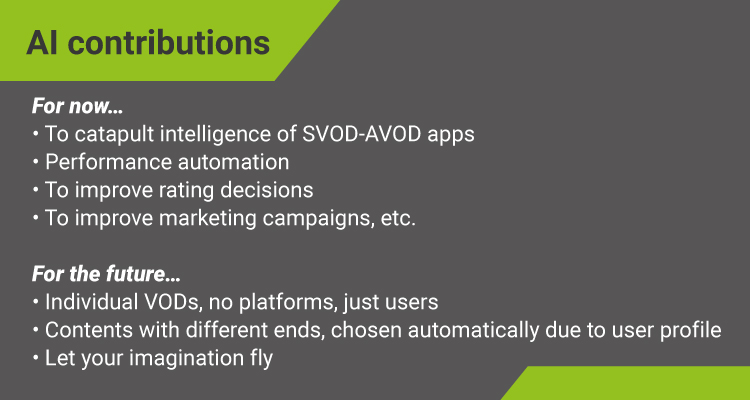
But AI is not the only big new thing to face. There many new ingredients on the content bowl that most of the industry don’t still get involved. For instance, aggregators, that are still appearing internationally, but can be the first big change to come. With so many platforms and contents, ‘super aggregators’ (usually telcos or big Pay TV operators turned to AVOD platforms) can play a leading role to simplify the access to the top content. At least, they are hubs to all main platforms, but also, they are generating bundles with top SVODs, mixing their offering per a special flat fee. In the US domestic market, users can pay 7-9-12 dollars per Netflix, Amazon, Disney+, Max, and 6-10 dollars for an aggregator combining the four. Which has the best mixture from dozens of options, wins.
Also, you have Branded content and Digital advertising, that every content member knows what they are, but doesn’t deploy. Branded content is one of the best ways to afford new productions, if you have relationship with the agencies that make the connection between content producers and brands or stars managers. Digital advertising means to get involved into the processes that define advertising nowadays by big brands with their agencies. There, usually, it is better to have good relationships than a good product. There are so many contents and screens to choose, that the agencies make up big packages of media guided mainly by sure audiences to target. So, brands and audiences rule the new digital media environment, more than content.
Even, we have the AVOD platforms and FAST channels, that though we already find at the industry lots of solution providers, both technology and content, for most of the traditional content members (programming managers, etc.) those segments are far and away. Monetization is the key of course, how to reach it, but even the big SVODs have not the issue solved. There are a lot to do to make SVOD, AVOD, FAST segments mature and profitable.
Nicolás Smirnoff


